Longhorns Are Behind Some of TV’s Biggest Shows

Look at almost any buzzy TV show of the moment and you’ll find University of Texas alumni in the credits.
UT has flashy representatives in Matthew McConaughey, BS ’93, Life Member, Distinguished Alumnus, and Glen Powell, Outstanding Young Texas Ex, but the influence of Longhorns in Hollywood is not limited to the red carpet. The University has long enjoyed a respected place among the top film schools in the country, producing legendary producers, writers, and showrunners such as Thomas Schlamme, BS ’72, of West Wing walk-and-talk fame; former WB Television Network (now The CW) CEO Jordan Levin, BS ’89, Outstanding Young Texas Ex; and Veronica Mars creator Rob Thomas, BA ’87.
“For every one big name, we have a thousand people who are also working in the industry doing really amazing things,” Radio-Television-Film department chair Cindy McCreery says. The department has evolved alongside Austin, transforming from an indie filmmaker scene to a well-rounded media powerhouse offering students an increasingly wide range of undergraduate and graduate classes covering all aspects of the industry, from special effects and the business of Hollywood to the rise of streaming and TV pilot screenwriting.
That investment continues to pay off as more and more alumni enter the industry at all levels, shaping the stories Hollywood tells. After COVID-19 and multiple strikes rocked Hollywood, the industry is still in a season of uncertainty, with the previous bloat of streaming giving way to a contraction of opportunities. Creatives are forced to develop the rare show that surprises and delights audiences while also convincing executives of its assured success.
Among those leading the way are Longhorns writing, producing, and running some of the surprise successes and blockbuster hits of the year that are keeping the industry looking forward.
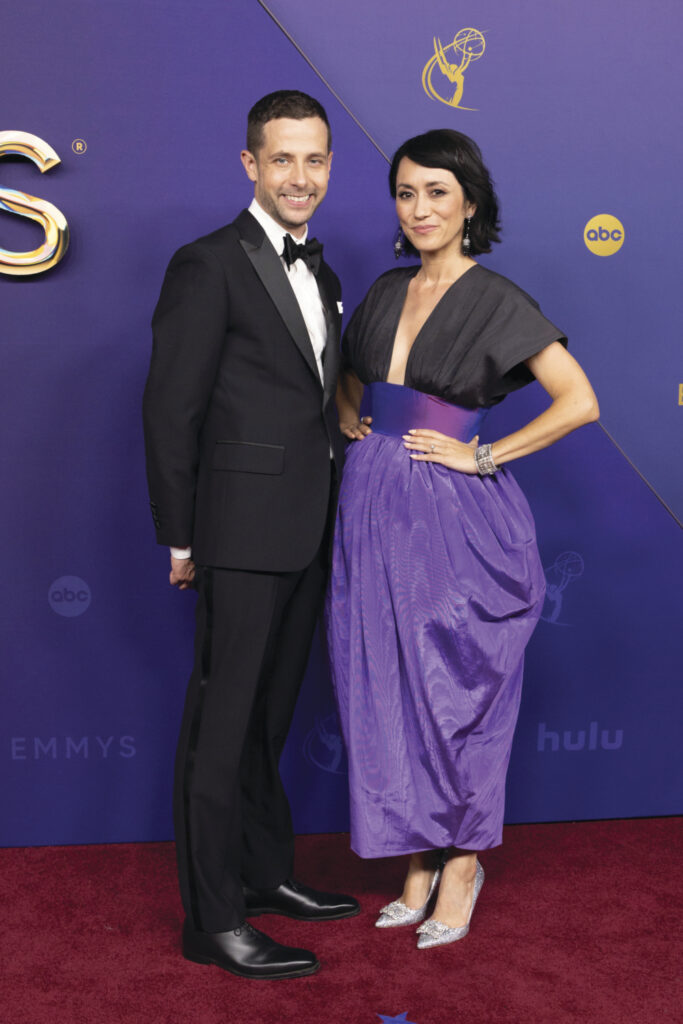
One of the biggest hits of the year and the winner of a record-breaking 18 Emmys, Shōgun, was created by alumna Rachel Kondo, MFA ’16, and her husband, Justin Marks. Patrick Schumacker, BS ’02, Life Member, is the co-showrunner of beloved ABC comedy Abbott Elementary. In her role as Chief Content Officer at Shondaland, Alison Eakle, MFA ’06, produced viral sensations Bridgerton, Inventing Anna, and Queen Charlotte. Ben Philippe, MFA ’14, wrote for the first three seasons of Only Murders in the Building and is now attached as a co-executive producer to the upcoming spinoff of The Office.
Liz Phang, MFA ’05, and Ameni Rozsa, MFA ’06, have both been nominated for Emmys as co-executive producers for the dark Showtime hit Yellowjackets. Akilah Green, BS ’02, was a co-executive producer on the sitcom Ghosts. Actor Mark Duplass, BA ’98, created and produced the new young adult Netflix series Penelope. Jessica Chou, MFA ’15, served as a co-producer for the satirical superhero hit The Boys. And that’s just scratching the surface.
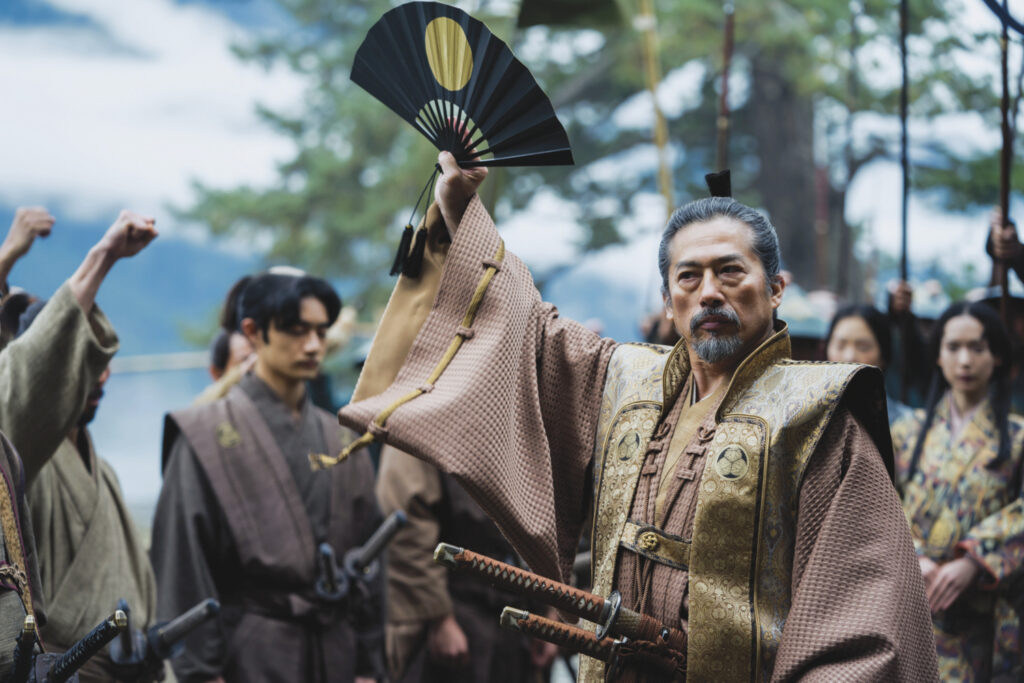
When Patrick Schumacker joins our Zoom call in early September, he’s wrapping up week four of production for the fourth season of Abbott Elementary. The mockumentary set in a fictional elementary school in Philadelphia has been nominated for 24 Emmys and enjoys an almost perfect record of 100 percent on Rotten Tomatoes across its first three seasons as it heads into its fourth.
“The success of the show is a double-edged sword,” Schumacker says. “The main challenge is keeping things interesting for the audience who stuck with it for 53 episodes … It becomes more and more of a needle-threading exercise the more seasons you get.”
Unlike many of his peers in streaming, Schumacker is on an old-school network schedule. He doesn’t have the liberty of two years in between seasons to produce a handful of episodes. His team has delivered four seasons in under four years—a rarity in this era of binge-watching.
Also unlike many of his peers, his star, Quinta Brunson, doubles as the show’s creator, adding an urgency to write as many episodes as possible before production begins. As soon as filming starts, they lose time with Brunson, a crucial cog in the writers’ room, which can slow down scripts for the remaining episodes.
Alongside his longtime writing and business partner Justin Halpern, Schumacker has to manage his time carefully to keep the show on track, while also working on other projects with their company, Delicious Non-Sequitur Productions. A typical day for him is “whiplash,” he says.
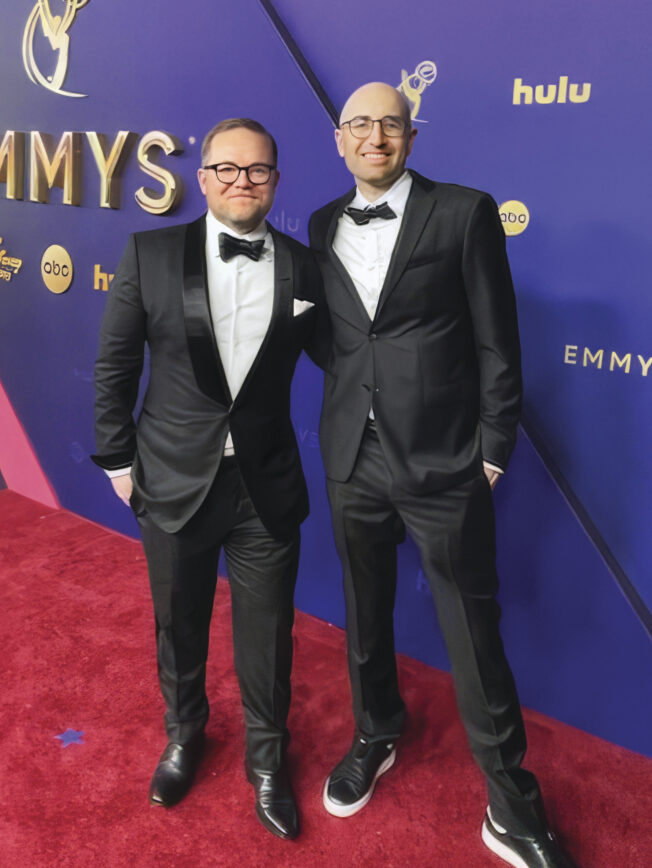
He’s on the Abbott set from 7 to 10 a.m. then in the writers’ room for two hours. At lunch, he might give notes to another writer he’s helping or work on an outside script. Then he’s back in the writers’ room for a few hours. The show will wrap production around 4 p.m., allowing Schumacker to go back to other projects. He ends the night prepping for the following day before he falls asleep.
While it’s a busy day, it’s a far cry from some of the writers’ rooms he came up in, where writers would stay well into the night or the following day. Schumacker and Halpern want their staff to enjoy a better work balance, prompting them to wrap while the sun is still out.
“It ends up paying off in droves,” Schumacker says. “Especially with a show like Abbott or sitcoms in general, you want to draw from your own life as a writer, so you want to live your life.”
As a showrunner, Schumacker is the liaison between creative and business; he makes creative decisions, but he also ensures the production schedule stays on time and within budget. The showrunner is not a new position in the industry, but in the 21st century, it’s taken on a heightened visibility.
In the era of prestige television and with the rise of social media, showrunners including Matthew Weiner of Mad Men, Law & Order’s Dick Wolf, or Shonda Rhimes of Grey’s Anatomy are as well-known as their casts.
In an article published in the peer-reviewed journal Television & New Media tracking the evolution of the showrunner, RTF professor Alisa Perren, MA ’98, PhD ’04, and professor emeritus Thomas Schatz found that the usage of the term “showrunner” in Variety articles quintupled in just 20 years.
“The explosive growth of cable, satellite, and streaming television over the past two decades has been accompanied by a dramatic rise in the number of such high-profile showrunners, who are regularly identified in the networks’ promotional materials, featured in fawning journalistic profiles, and celebrated for their ambitious storytelling strategies as well as their ability to connect with fans via social media,” they wrote.
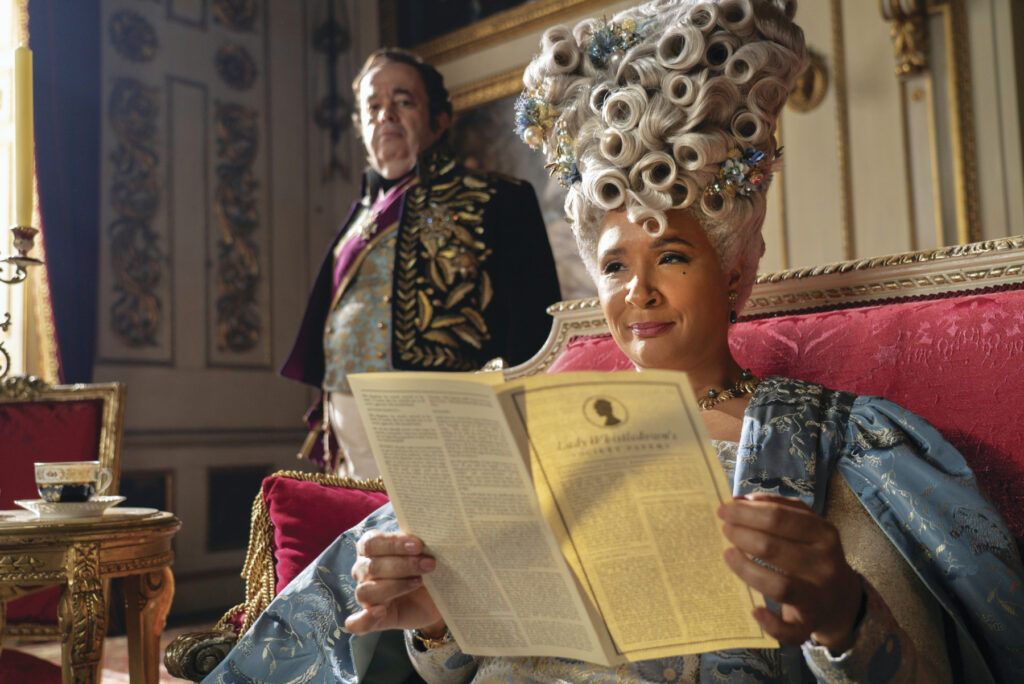
As the Chief Content Officer for Shondaland and co-executive producer for Bridgerton, Queen Charlotte, and Inventing Anna, Alison Eakle has to think beyond the shows themselves. In a podcast with RockWater founder Chris Erwin, she shared that she’s always considering the potential for podcasts and other digital spinoff content to market her shows, illustrating the need for the modern producer and showrunner to expand their definition of content.
“This company is always evolving,” she said on the podcast about Shondaland. “The work we’re doing is always shifting and changing and growing. And it’s part of why I was so excited to work with Shonda [Rhimes] and Betsy [Beers] in the beginning because I knew they had these bigger plans, right? World domination through incredible storytelling—very appealing.”
While Schumacker and Eakle have reached incredible heights in their respective careers, neither of their successes happened overnight. In her keynote address at the 2024 Moody College of Communication Graduation, Eakle remembered a particularly humbling moment early on in her career.
While grabbing drinks after work, a fellow assistant griped they’d rather be dead than still working as an assistant in Hollywood at 30—not knowing Eakle was already 31. The next year, Eakle finally got her first executive role: a coordinating manager at A Very Good Production, a production company founded by Ellen DeGeneres and Warner Bros.
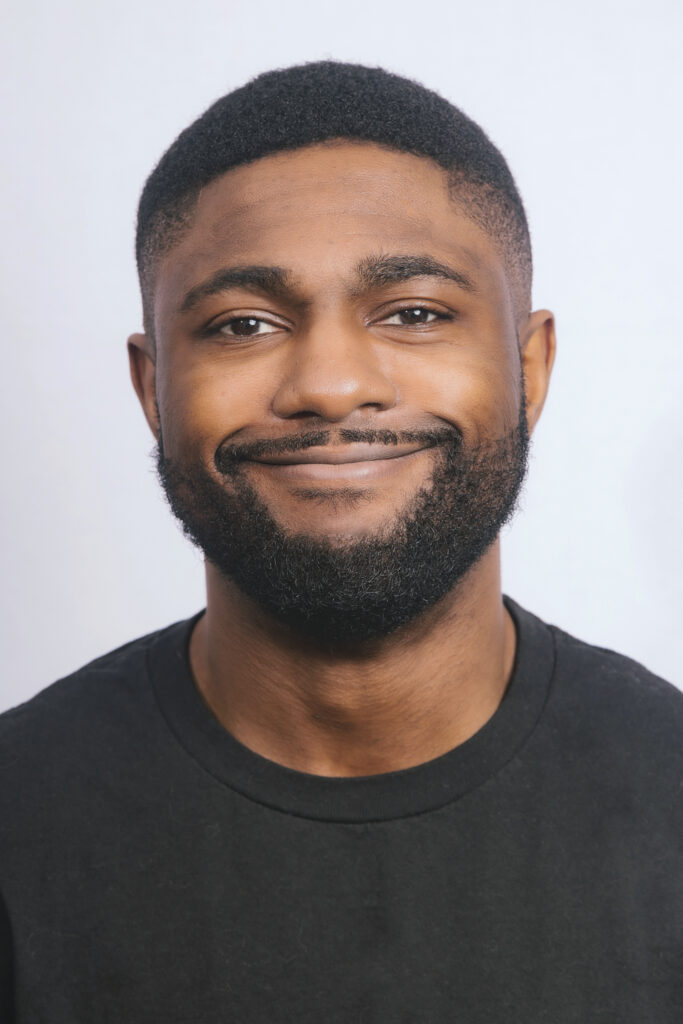
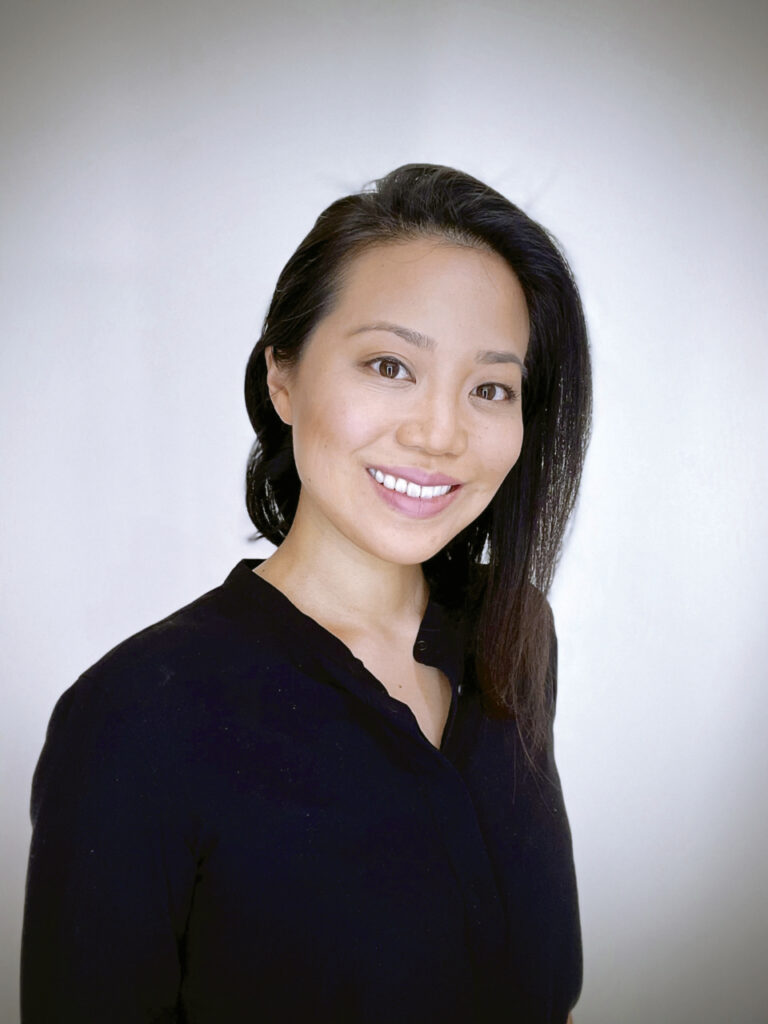
All you need is one yes.
That’s what Ben Philippe tells aspiring screenwriters hoping to break into the industry. He shows them the hundreds of rejections he’s received throughout his career from journals and agents across the country.
“Where you think you’re going to be at 25, you might end up being there at 35, and that’s OK,” he reassures them. “That’s not a waste of time.”
At the age of 6, Philippe’s family emigrated from Haiti to Canada where Philippe lived until he moved to New York City to study at Columbia University. The Michener Center for Writers felt like the perfect next step in his career since it allowed him to pursue both fiction and screenwriting.
He graduated in 2014, and his “yes” finally arrived six years later.
In 2019, he was introduced to Jess Rosenthal, an executive producer for This Is Us. Rosenthal wasn’t hiring but said he’d keep Philippe in mind. The meeting felt like a failure, another roadblock to breaking into the TV industry.
One year later, Philippe received an email from Rosenthal: He was putting together a writers’ room for a new show created by Steve Martin. Because of the pandemic, the writers’ room would be virtual, and they were looking for a few writers based in New York since the show would be set in the city.
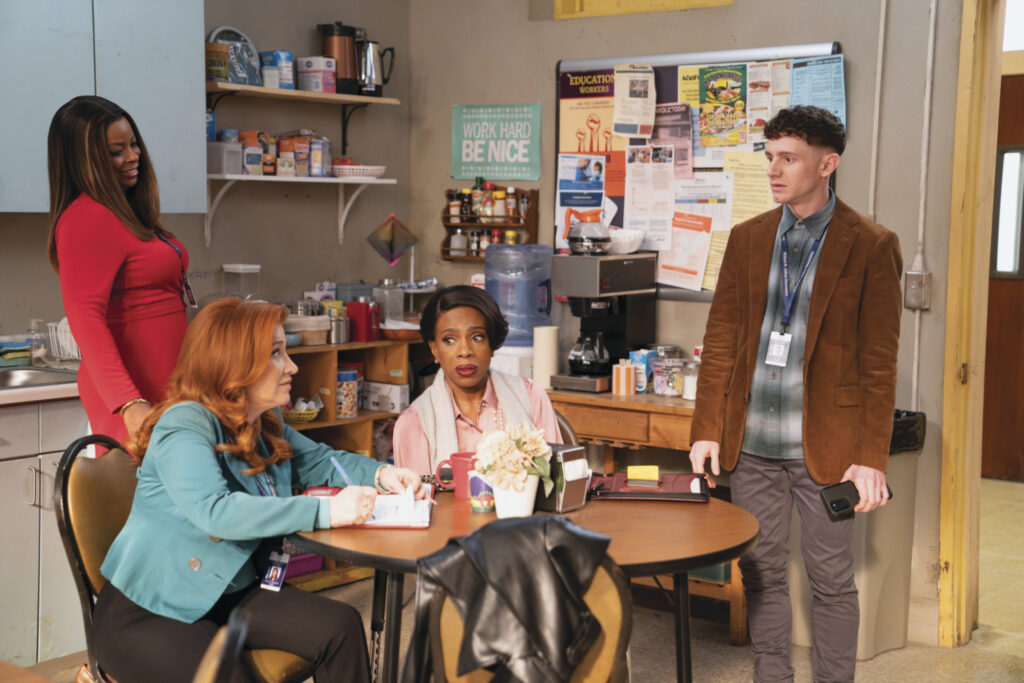
Philippe signed on, joining what would become Only Murders in the Building. He didn’t care if the show got canceled after one season; he was just giddy to finally be a staff writer on a real TV show.
The magnitude of the project hit him when the writers were developing one of the main characters, Mabel. They envisioned a Selena Gomez type for the role and a few weeks later received the news that they didn’t just cast a Selena-like actress; they cast the Selena Gomez.
“Anything is possible on a show that has this level of talent attached to it and that the network so strongly believes in,” Philippe says. “The best version of a Selena Gomez type character is Selena Gomez, and the best version of an actress from New York is Meryl Streep.”
They got them both—and a slew of other celebrities who wanted to be part of the show that set Hulu viewership records and has maintained a near-perfect 100 percent on Rotten Tomatoes for four seasons.
After three seasons, which took place during the pandemic and the Writers Guild of America strike, Philippe declined to return for season four, uncertain if he was ready to make a full-time move to LA now that the writers’ room was permanently off Zoom.
But when creator of The Office Greg Daniels offered him a spot in the writers’ room for the upcoming, still unnamed Office spinoff, he was ready to surrender to the cliche of the bicoastal writer.
This time, Philippe is a co-producer, a title which gives him more responsibility. Instead of doing table reads on Zoom, he’s experiencing them in person. (It’s a lot more painful when your joke flops in person and you can’t turn your camera off, he says.)
The imposter syndrome is still there, but Philippe knows he’s one of the fortunate ones who’s come out on the other side of the strikes.
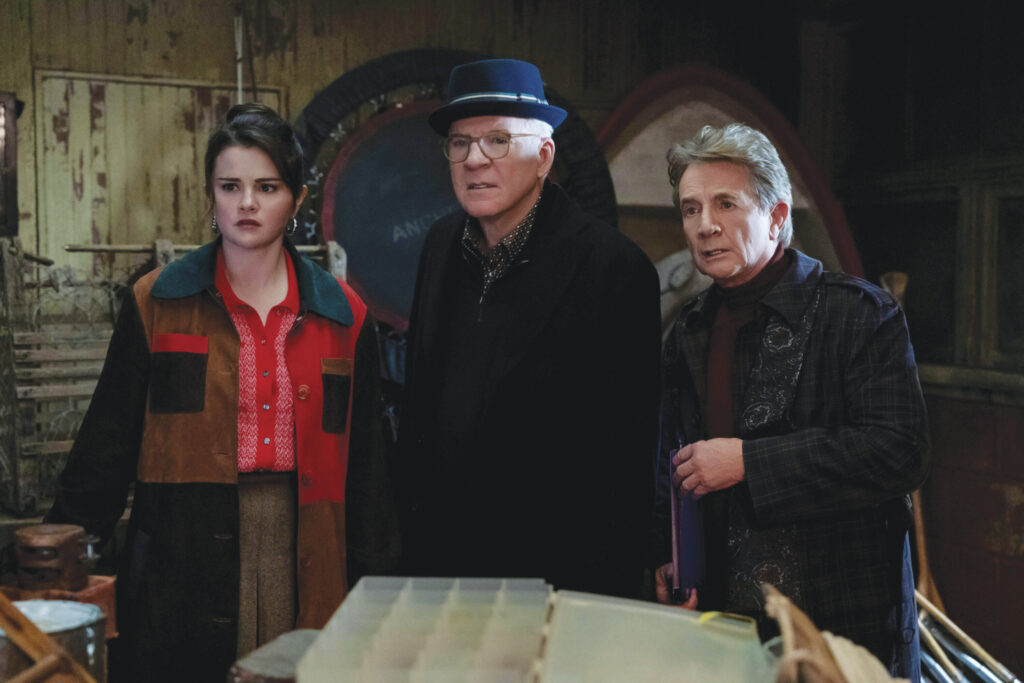
On May 2, 2023, the Writers Guild of America went on strike. Jessica Chou’s coworkers were split over packing up their offices. In a moment reminiscent of March 2020, some hesitated, certain they would come back soon. Others knew it could be months before they would return. The latter group was proven right with the WGA strike ending in September.
Going into the TV industry, Chou knew “stability was not really going to be a fixture” in her life, but it didn’t lessen the anxiety of the moment.
Chou always knew she wanted to be a writer, but she didn’t realize she was interested in screenwriting until she was halfway through her master’s in fiction writing at the University of Missouri. After she completed the degree, she attended UT’s Michener Center then moved to Los Angeles, where she was accepted into the CBS Diversity Writers Mentoring cohort.
The experience equipped her with invaluable business knowledge, from how to take meetings with executives to pitching stories with confidence. After working on a handful of shows, she joined the writers’ room as a co-producer for one of her favorite shows, The Boys, Amazon Prime Video’s satirical take on the superhero genre, and also helped produce its spinoff show, Gen V.
It’s a genre she’s loved since childhood, and as a writer, it’s a medium that allows her to write about what matters to her. “Genre is the best platform to talk about social issues,” she says. “A spoonful of sugar helps the medicine go down.”
All of her experiences have combined to form her unique view on the world, which comes through in her storytelling. A childhood spent moving around the country and in Saudi Arabia gave her a sharp eye for human behavior. Her time at Mizzou taught her the value of developing strong characters. At UT, she learned how to structure a screenplay while her time at CBS gave her the business know-how.
The students who tend to shine the most, McCreery says, are the ones who ignore the temptation to replicate what’s already been successful.
As a professor, she can’t predict which students will break into the industry, but her goal is to give them a foundation of storytelling and a broad toolkit of skills—so when a historic pandemic or strike arrives, they know how to pivot. “We want people to tell their own unique stories and not tell stories they think Hollywood wants,” McCreery says. “That’s what really stuck out with students like Davia Carter, Rachel Kondo, Jessica Chou, and Ben Philippe. They have such unique voices.”
In the shadow of the strikes, the industry is leaner, less likely to take a chance on anything that’s not a guaranteed success. But what audiences do want is often surprising, Philippe says. It’s the original hits with fresh elements that encourage and excite him for the future of the industry.
The advent of streaming has exposed audiences to a much broader, wide-ranging slate of content, Chou says, expanding their taste and palate. While the industry is still regulating, the landscape is full of possibility.
“[Streaming] has broadened the expectation for what a story could be and who a heroine could be and the kind of stories that can be told,” Chou says. “I am all about that … It’s a miracle that anything gets made because the process is so Byzantine and long and arduous. But the fact that so much interesting, varied content is getting out there is very heartening to me.”
If awards are any indication that executives are still willing to bet on unique, diverse content, Shōgun’s record-shattering Emmy wins this September—for a “very expensive subtitled Japanese period piece whose central climax revolves around a poetry competition,” as creator Marks described it in his acceptance speech—feels like a positive omen.
CREDITS: From top, illustration by Edward McGowan; Scott Kirkland/Disney; Katie Yu/FX; Grace Park/WB Publicity; Liam Daniel/Netflix; courtesy of Ben Philippe; courtesy of Jessica Chou; Gilles Mingasson/Disney; Patrick Harbron/Disney










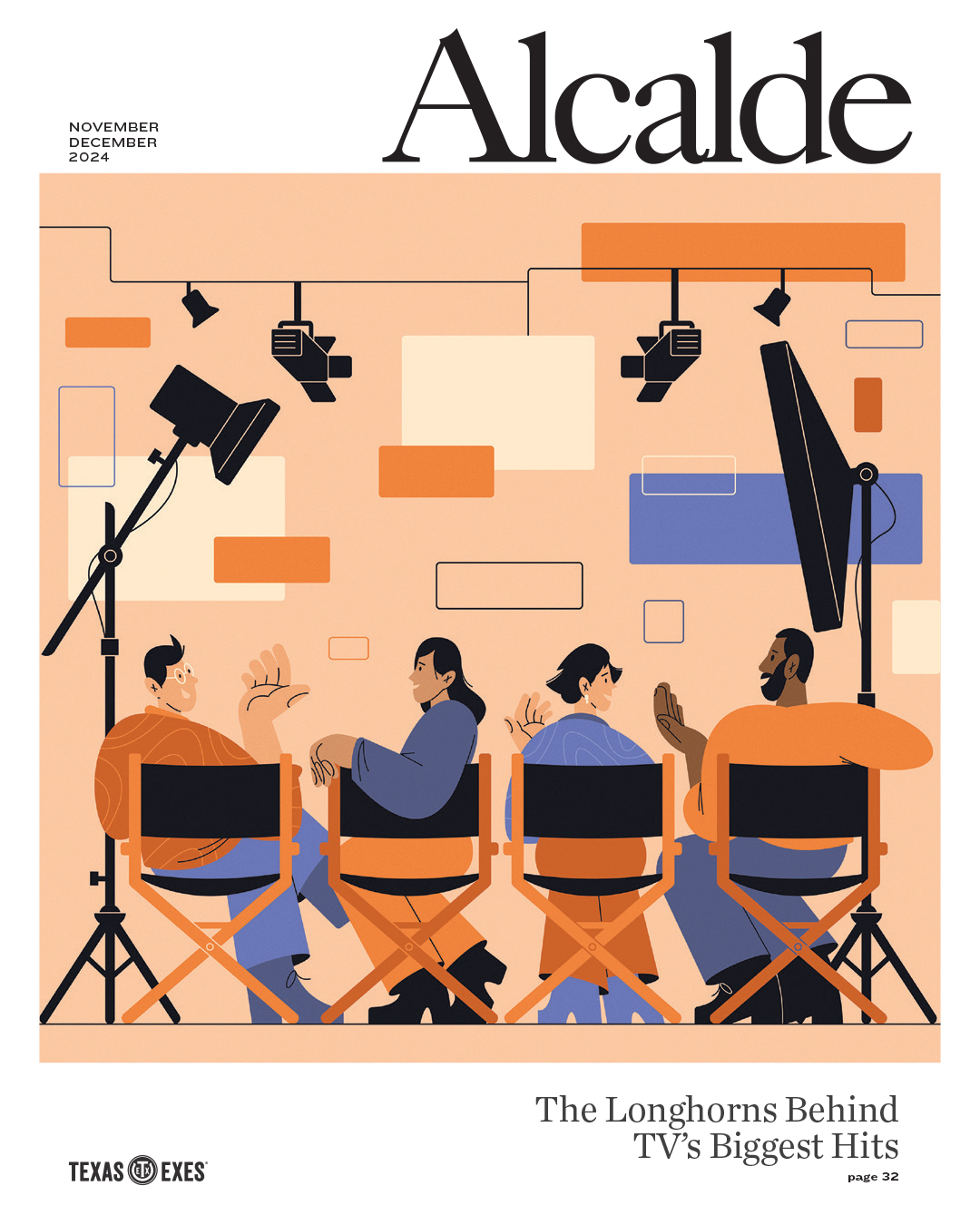



2 Comments